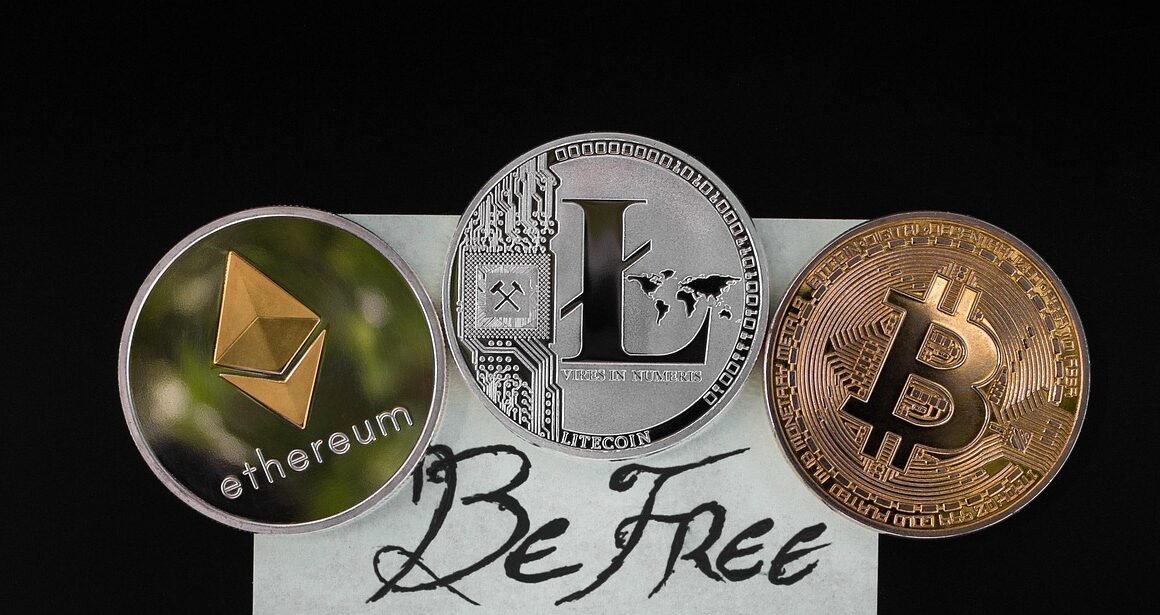Smart contracts are revolutionizing the way we conduct business, automate tasks, and ensure transparency across various industries. They represent a fundamental shift from traditional paper-based agreements to self-executing digital contracts. This blog post provides a comprehensive overview of smart contracts, exploring their functionality, benefits, use cases, and potential impact on the future.
Understanding Smart Contracts
What is a Smart Contract?
At its core, a smart contract is a self-executing agreement written in code and stored on a blockchain. It’s a program that automatically executes when predetermined conditions are met. Think of it like a digital vending machine: you insert coins (cryptocurrency), select an item (fulfill the conditions), and the machine dispenses the item (executes the contract) without needing a human operator. Once deployed, smart contracts are immutable and transparent, meaning they cannot be altered, and all transactions are publicly verifiable on the blockchain.
- Self-Executing: Contracts execute automatically when conditions are met.
- Decentralized: Stored on a blockchain, removing the need for a central authority.
- Immutable: Once deployed, the contract code cannot be changed.
- Transparent: All transactions are recorded on the blockchain and are publicly auditable.
How Do Smart Contracts Work?
Smart contracts operate based on an “if-then” logic. The contract code specifies the conditions that must be satisfied for the agreement to be executed. When these conditions are met, the contract automatically performs the predefined actions. The entire process is automated and verifiable on the blockchain.
Example: Imagine a smart contract for paying a freelancer. The contract specifies that the freelancer will receive payment when they submit proof of completed work (e.g., a link to a finished project). Once the proof is submitted and verified, the smart contract automatically releases the agreed-upon funds to the freelancer’s wallet.
Key Components of a Smart Contract
Several key components contribute to the functionality and security of smart contracts:
- Contract Code: The code defines the terms and conditions of the agreement. Common languages include Solidity (for Ethereum) and Vyper.
- Blockchain: The distributed ledger where the smart contract is stored and executed.
- Digital Signatures: Used to authenticate parties involved in the contract and authorize transactions.
- Gas: A unit of measure representing the computational effort required to execute a smart contract on a blockchain (particularly Ethereum). Users pay gas fees to compensate for the computing power used.
Benefits of Using Smart Contracts
Increased Transparency and Security
Smart contracts offer a level of transparency and security unmatched by traditional agreements. Because they are stored on a blockchain, all transactions are publicly auditable, reducing the risk of fraud and manipulation.
- Auditability: All contract terms and execution history are publicly verifiable.
- Immutability: Prevents unauthorized changes to the contract terms.
- Reduced Risk of Fraud: Automated execution minimizes the potential for human error and malicious interference.
Enhanced Efficiency and Automation
By automating the execution of agreements, smart contracts eliminate the need for intermediaries, reducing costs and streamlining processes. This leads to faster transaction times and improved efficiency.
- Faster Transactions: Automated execution speeds up contract processing.
- Reduced Costs: Elimination of intermediaries lowers transaction fees.
- Improved Accuracy: Automated execution minimizes errors.
- 24/7 Availability: Smart contracts operate continuously without downtime.
Trustless Environment
Smart contracts create a trustless environment where parties can transact with each other without needing to rely on a central authority or intermediary. The code serves as the ultimate arbiter of the agreement.
- Elimination of Intermediaries: Reduces reliance on third parties, such as banks or lawyers.
- Decentralized Trust: Trust is established through code rather than personal relationships or institutions.
- Reduced Counterparty Risk: Automated execution ensures that contractual obligations are fulfilled as agreed.
Examples of Smart Contract Benefits in Action:
- Supply Chain Management: Track goods and automate payments upon delivery confirmation, increasing transparency and reducing fraud. Studies have shown that blockchain based supply chains can reduce operational costs by up to 30%.
- Real Estate Transactions: Automate the transfer of property ownership and payment upon meeting specific conditions, eliminating the need for escrow services.
- Insurance Claims: Automate the processing of insurance claims based on verifiable data, such as weather reports or sensor readings.
Use Cases Across Industries
Finance and Banking
Smart contracts are transforming the financial industry by automating various processes, such as lending, borrowing, and trading. Decentralized Finance (DeFi) platforms leverage smart contracts to offer a range of financial services without the need for traditional intermediaries.
- Decentralized Lending and Borrowing: Platforms like Aave and Compound use smart contracts to automate lending and borrowing processes, allowing users to earn interest on their crypto assets or borrow funds using their crypto as collateral.
- Automated Trading: Smart contracts can execute trades automatically based on predefined conditions, improving efficiency and reducing transaction costs.
- Tokenization of Assets: Smart contracts enable the tokenization of real-world assets, such as stocks, bonds, and real estate, making them more liquid and accessible.
Supply Chain Management
Smart contracts can track goods throughout the supply chain, providing greater transparency and accountability. This can help reduce fraud, improve efficiency, and ensure product authenticity. Walmart, for example, uses blockchain and smart contracts to track the origin of its produce, significantly reducing the time it takes to trace contaminated food back to its source.
- Tracking Product Provenance: Ensuring the authenticity and origin of products.
- Automated Payments: Triggering payments automatically upon delivery confirmation.
- Supply Chain Optimization: Improving efficiency and reducing waste.
Healthcare
Smart contracts can securely store and manage patient data, enabling patients to control access to their medical records. They can also automate insurance claims processing and facilitate clinical trials.
- Secure Data Storage: Protecting patient privacy and data security.
- Automated Claims Processing: Streamlining insurance claims and reducing administrative costs.
- Clinical Trial Management: Improving the efficiency and transparency of clinical trials.
Voting Systems
Smart contracts can create secure and transparent voting systems, reducing the risk of fraud and manipulation. Electronic voting systems based on smart contracts can significantly improve voter turnout and confidence in election results.
- Secure Voting: Preventing voter fraud and ensuring fair elections.
- Transparent Auditing: Allowing for public verification of election results.
- Increased Accessibility: Making voting more accessible to a wider range of people.
Challenges and Considerations
Security Vulnerabilities
Smart contracts, being code, are susceptible to bugs and vulnerabilities that can be exploited by malicious actors. It’s crucial to thoroughly audit and test smart contracts before deploying them to a production environment. According to a report by ChainSecurity, smart contract vulnerabilities led to losses of over $2 billion in 2022.
- Code Audits: Independent audits by security experts are essential to identify and fix potential vulnerabilities.
- Formal Verification: Using mathematical techniques to prove the correctness of the contract code.
- Bug Bounty Programs: Incentivizing security researchers to find and report vulnerabilities.
Scalability Issues
Some blockchain networks, like Ethereum, face scalability challenges that can limit the performance of smart contracts. High transaction fees and slow processing times can hinder the adoption of smart contracts for high-volume applications. Layer-2 scaling solutions are actively being developed to address these issues.
- Layer-2 Scaling Solutions: Technologies like rollups and sidechains aim to improve the scalability of blockchain networks.
- Alternative Blockchains: Exploring other blockchain platforms that offer higher transaction throughput.
Regulatory Uncertainty
The regulatory landscape surrounding smart contracts is still evolving. There is a lack of clear legal frameworks for governing the use of smart contracts, which can create uncertainty and hinder their adoption. Governments and regulatory bodies are actively working on developing regulations to address the unique challenges posed by smart contracts.
- Clear Legal Frameworks: Establishing clear legal guidelines for the use of smart contracts.
- Consumer Protection: Protecting consumers from potential risks associated with smart contracts.
- Compliance with Existing Laws: Ensuring that smart contracts comply with existing laws and regulations.
Conclusion
Smart contracts represent a powerful technology with the potential to revolutionize various industries. By automating agreements, increasing transparency, and reducing the need for intermediaries, they offer significant benefits over traditional contracts. While challenges remain, ongoing developments in security, scalability, and regulation are paving the way for wider adoption. As blockchain technology continues to evolve, smart contracts are poised to play an increasingly important role in shaping the future of commerce and governance.



